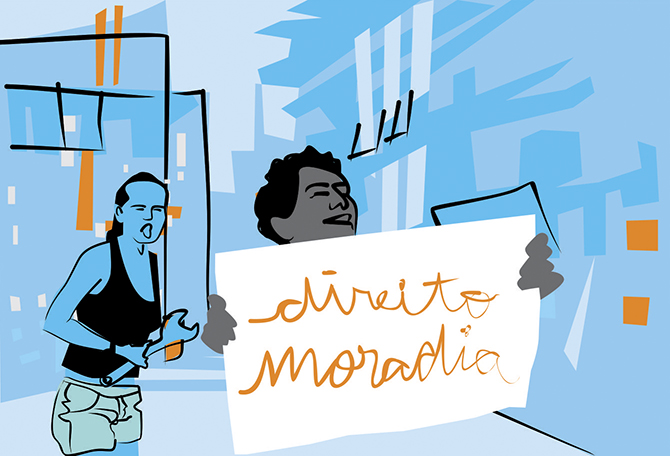
Homeless People
In Brazil, we observe an increase in the number of urban occupations, which occurs in the context of the advance of the real estate financial model of cities, which, in the midst of exorbitant real estate speculation and strangulation of social public policies, repels the possibilities of access to minimum rights for all and all. According to data from the Fundação João Pinheiro of 2014, the Brazilian housing deficit is more than 6 million households. “It’s such a house without people and so many people without a house.”
Housing movements are resisting and, on the national scene, there have been countless episodes of violent repression of human rights defenders struggling for housing. The evictions carried out in urban occupations around the country have been marked by police violence and legal inconsistencies in favor of the owners and to the detriment of the social function that the spaces occupied by these movements should have.
There are no data on the Brazilian housing deficit due to gender cutbacks. However, considering that 82.5% of this deficit is concentrated in the population with incomes of up to three minimum wages (JOÃO PINHEIRO FOUNDATION, 2015) and 71.3% of working women receive up to two minimum wages (IGBE, 2009). It is possible that the lack of access to housing affects the expressive share of women, especially black women.
They remain the main responsible for the domestic sphere, dealing with the maintenance of the house, food and care with daughters and children. They are therefore the most affected by lack of housing or inadequacy of their conditions and by the difficulty of access to urban infrastructure and public services, such as schools and health posts. Therefore, they are the ones that occupy most, although they do not appear as spokesmen or political representatives of the organizations for the struggle for housing. The homeless staff is a conversation for men, but it’s work for women.
If the scene of the city is somewhat sexist, classist and racist, they resist. Because while living is a privilege, to occupy is a right!

